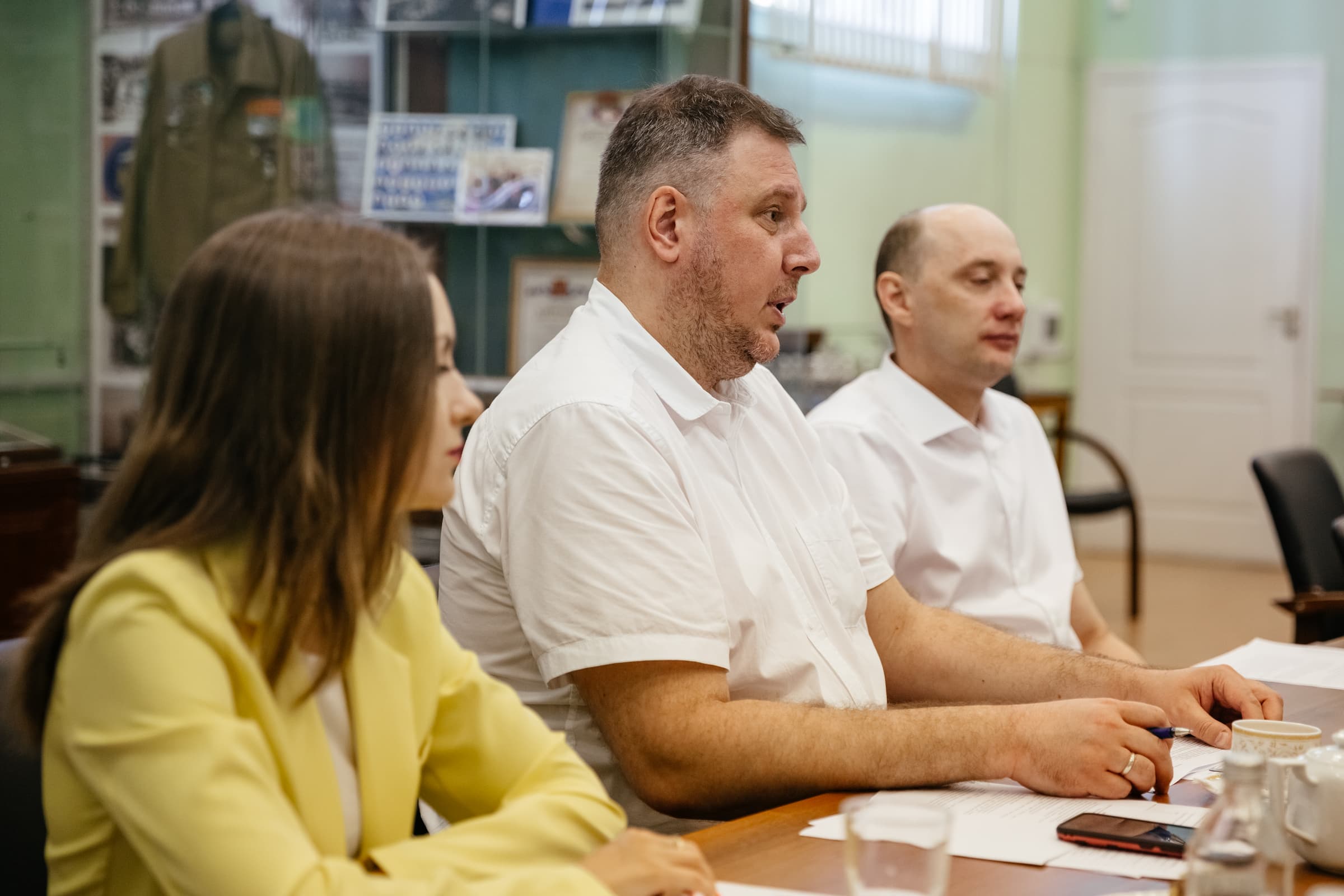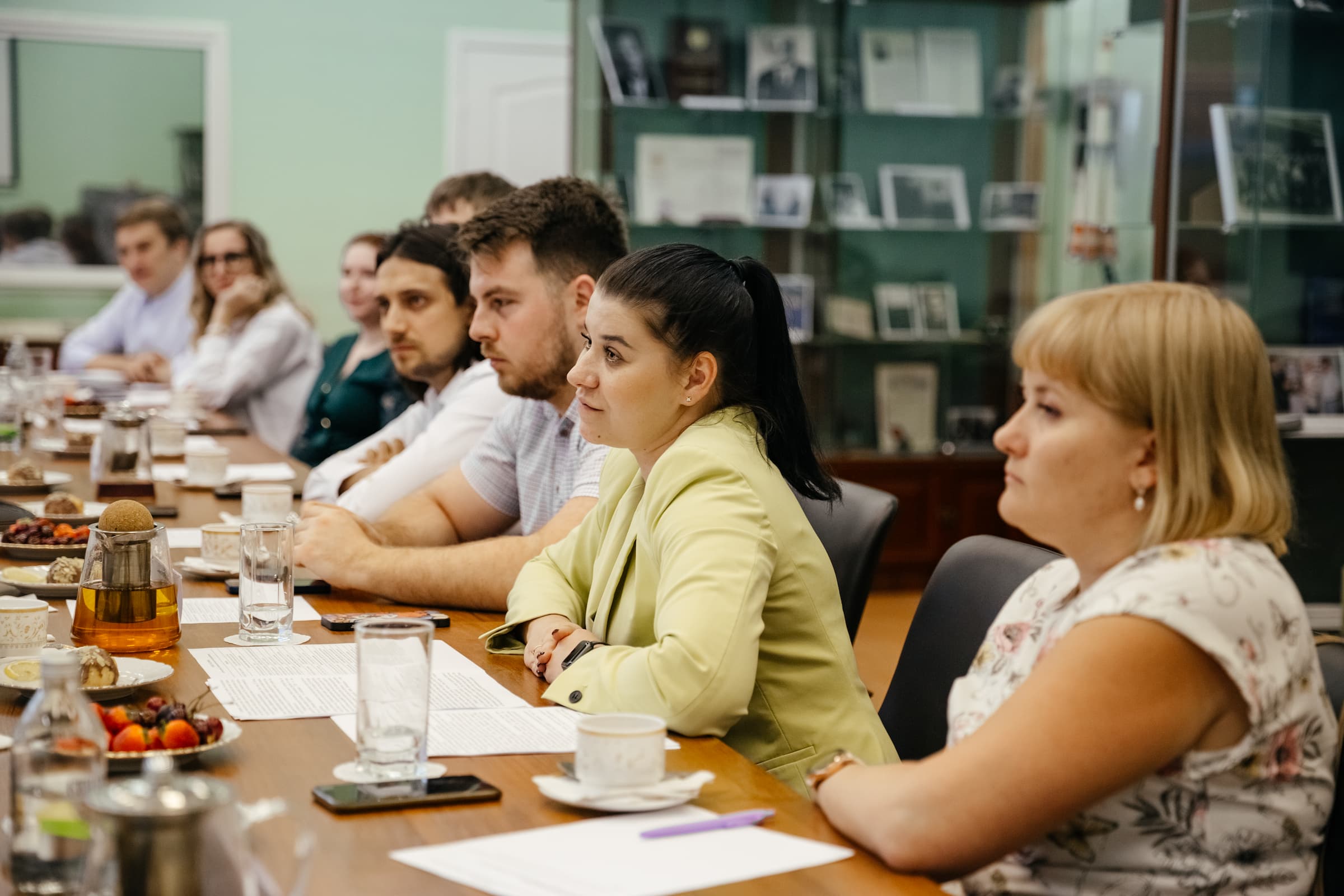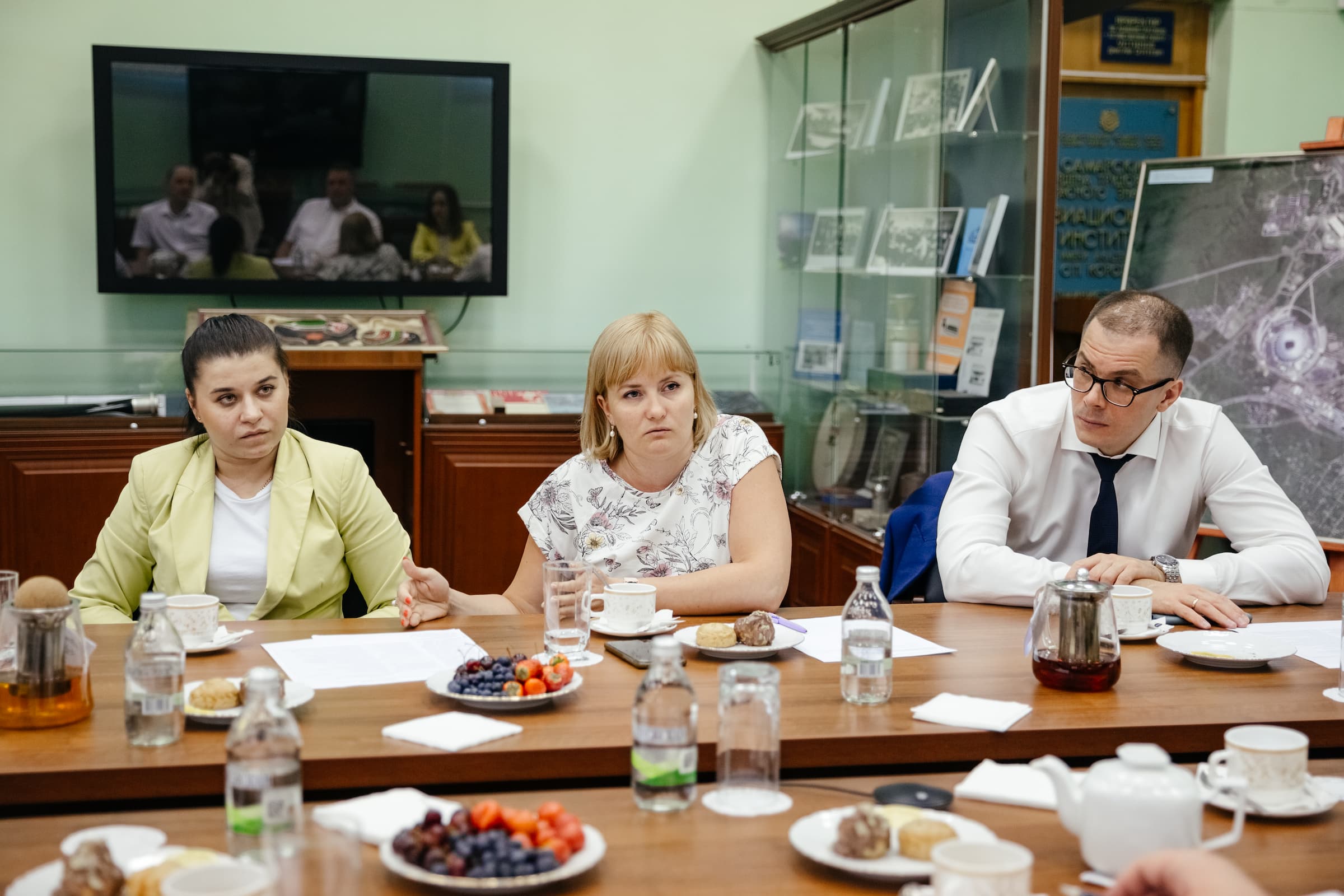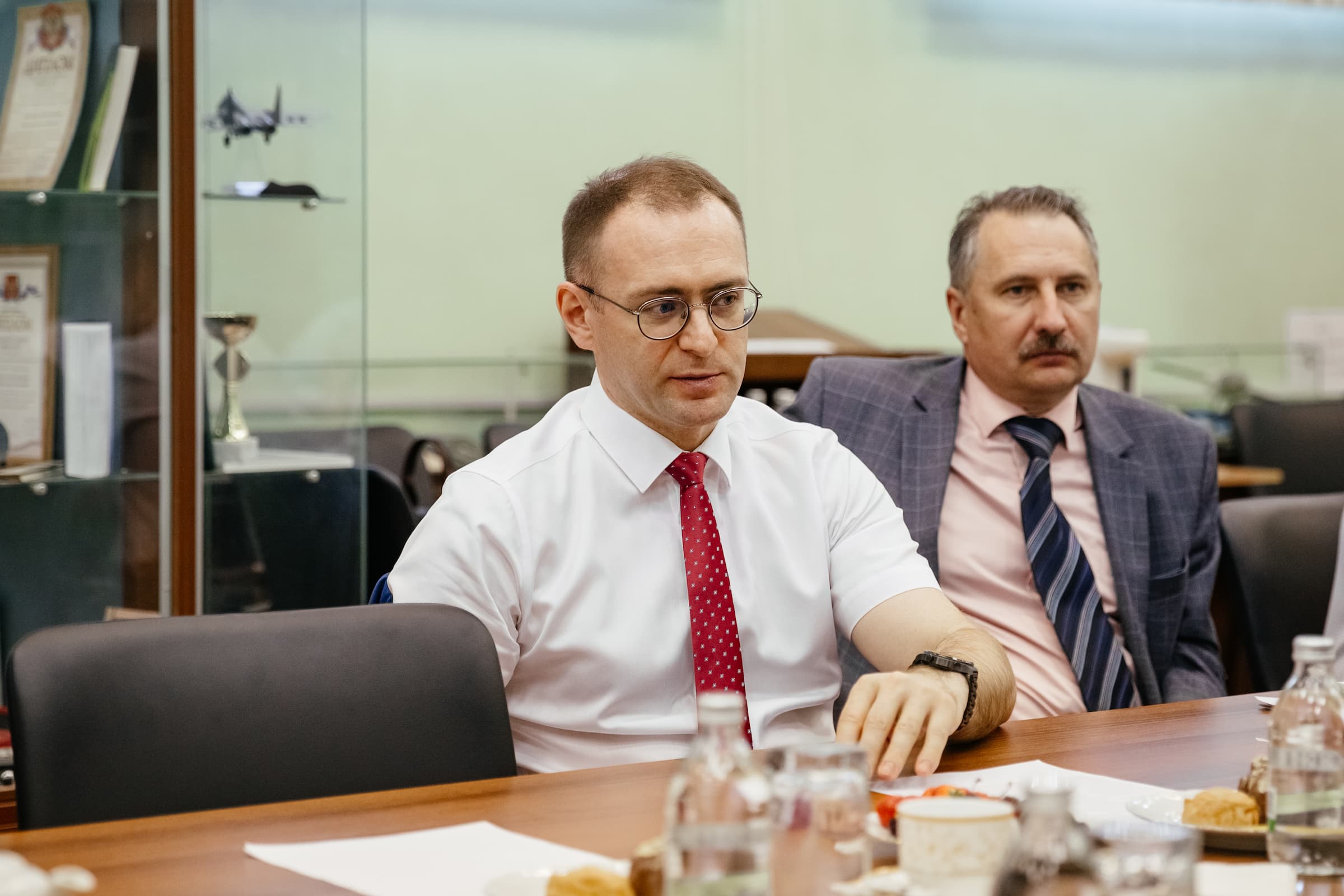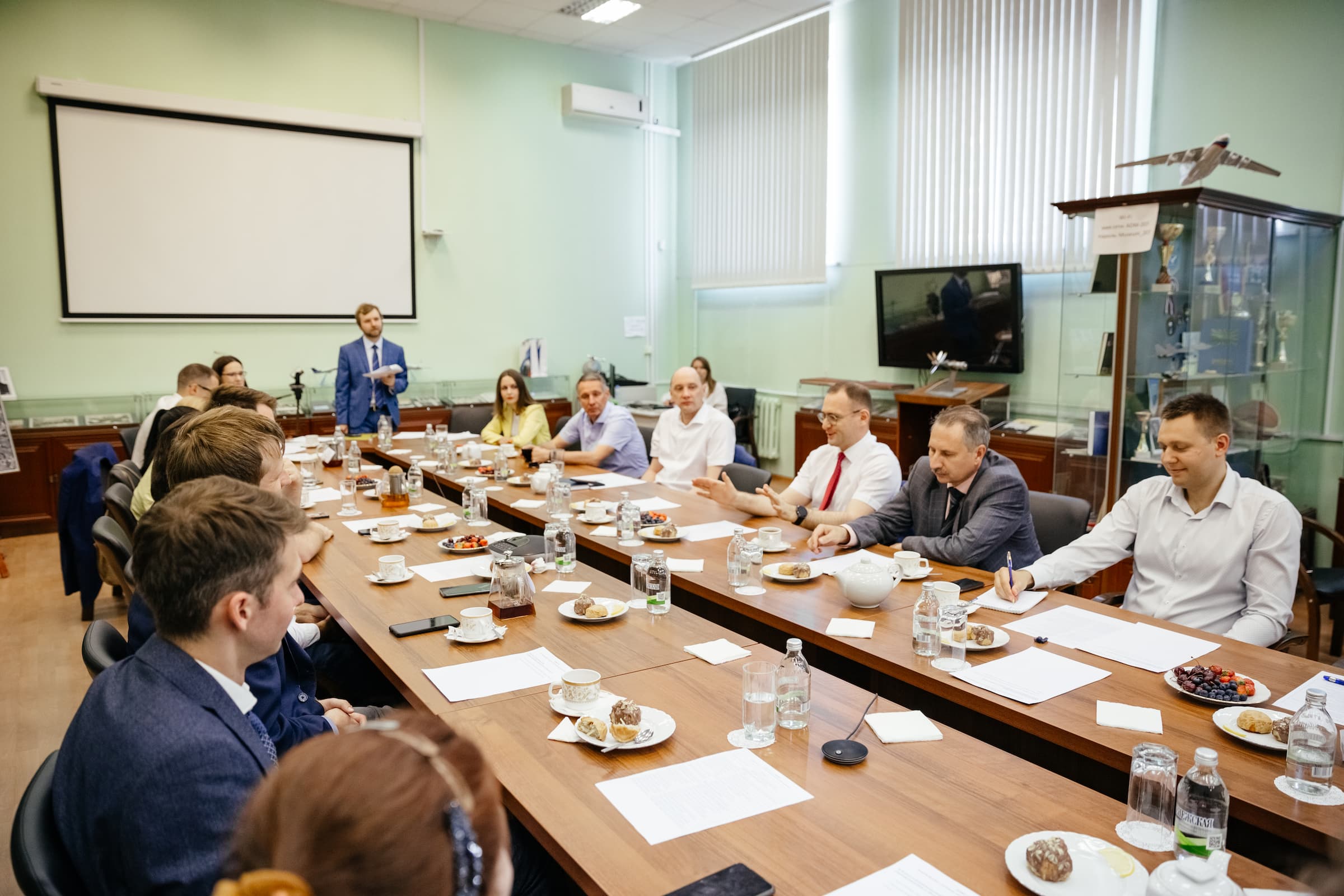The meeting was organized by the Council of Young Scientists and Specialists of the University.
The conversation turned out frank and informal. They talked about the quality of education, mentorship, corporate culture, University infrastructure development and instrumental base renewal, as well as about the tools for support of young lecturers and scientists.
Yelena Kozlova, Associate Professor of the Department of Engineering Cybernetics, stated that it is difficult for the University as an employer to compete with IT companies in a fight for talented graduate students. “Senior year students of the Institute of IT and Cybernetics earn as programmers more than I do as a lecturer. That is why the support mechanisms need to be worked out, so that they could retain the youth at the Department, since the material factor nowadays remains decisive when they decide upon their future employment,” Yelena Kozlova noted. She suggested introducing benefits for postgraduate students that work as lecturers and considering an opportunity of gradual integration of the young lecturers into the educational process.
Andrei Gavrilov, Vice Rector for Academic Affairs, assured those present that a more flexible approach to the load distribution for young lecturers could be applied individually, as there had already been such precedents.
As for the competition with IT companies for personnel, there is an operating system of support measures for the youth in the University which includes effective contracts, extra payments for the victory in the competition of young academic and teaching staff members, support for participation in regional and federal competitions, an opportunity to get their own residential property in family dormitories, promotion of scientific researches. A new collective employment agreement has been adopted recently to provide for a whole range of other support measures—advanced professional education, trips for rest and recreation, interest-free loans and other things.
Evgeny Filinov, Associate Professor of the Department of Aircraft Engine Theory, expressed his interest in the prospects of a full transition to the electronic document workflow and a chance for digitalization of the contract execution process.
The Rector drew attention of the meeting participants to the fact that scientists and lecturers should not solve paperwork-related issues on their own, as there are special administrators at departments for this purpose. He noted that some Russian universities chose the path of abolishing the departments as administrative units to create a “single-window system” which works like a Multifunctional Public Services Center, but such a radical transformation requires detailed elaboration and a balanced approach.
Dmitry Pashkov, Vice Rector for Digital Transformation, said that the process of digital transformation is never static. The University progressively moves toward achievement of the target model which is to digitalize 80% of documents by 2026. In 2022, a Regulation on Corporate Electronic Mail was designed and implemented to legally enshrine the electronic message exchange as equal to the exchange of those on paper-based media. In January 2023, industrial exploitation of electronic document workflow modules for digitalization of research unit business processes started. Now, a text of a request or a contract for R&D completion, reporting documents or financial reports can be aligned in 1C.
In the autumn, the works on creation of an electronic employment module will start, and in early 2024, the process associated with official trip execution are planned to be digitalized.
Special focus at the meeting was on the issue of the International Interuniversity Campus.
Vladimir Bogatyrev shared plans for University relocation saying that the new campus built in the framework of the Science and Universities National Project will meet all the modern requirements. “The territory of the campus will include not only educational spaces, scientific laboratories and dormitories, but also sport and entertainment infrastructure, a cafe, public spaces and co-working areas — everything necessary for life and development. This space will be a new point of growth in the Samara Region. And we are already participants of this largescale project,” Rector highlighted.
Based on the results of the meeting, a decision to continue the dialogue in the format of individual meetings with Vice Rectors on issues the young scientists didn’t manage to get answers for today.
 RU
RU  EN
EN  CN
CN  ES
ES 

